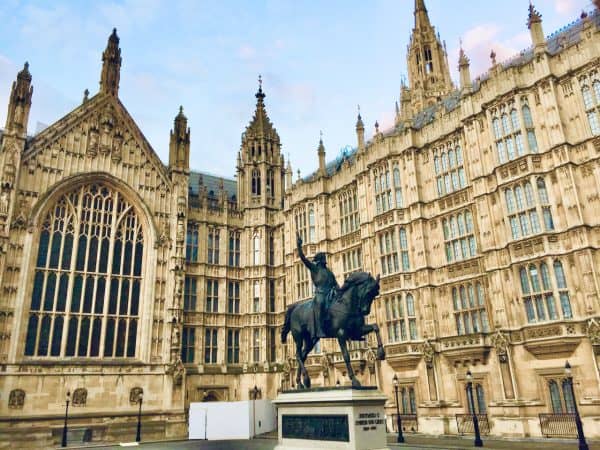
Digital asset industry participants are pushing back against the Parliament Treasury Committee’s report on crypto that declared the asset class should be treated like gambling. The statement was predicated on the opinion that many cryptocurrencies hold no intrinsic value – except for speculation.
The Chair of the Committee, Harriet Baldwin MP, said digital assets hold “no discernable social good” that resembles a trip to a casino.
FINERY Markets CEO and co-founder Konstantin Shulga reflected on the comments describing Baldwin’s opinion as an oversimplification, adding that crypto holds the potential to “shake up various industries.”
“Digital nomads from all corners of the globe are embracing crypto, and online merchants are accepting payments in it. Payment systems, from startups to industry giants like Mastercard and Visa, are exploring opportunities in digital assets. Institutional players of the financial world hailed crypto as a new asset class. Tokenisation of physical assets, from precious metals to real estate, holds immense promise. None of these use cases have anything to do with gambling,” said Shulga.
He said that the value of crypto is rooted in trust, and blockchain technology makes this possible. Shulga said well-crafted rules and regulations could effectively mitigate existing risks and clear the way for crypto to flourish. Reflecting on the Committee’s belief that regulation will provide a “halo” of acceptance, Shulga said that any regulated financial service holds risk, and investors are aware of this.
“A stable and predictable environment for the crypto industry will help protect consumers from fraudulent activities and other associated risks.”
Katharine Wooller, Business Unit Director at Coincover, welcomed the comments from the Treasury Committee and said they agree that robust regulation is needed, similar to any asset class.
“Ultimately, if the UK is serious about becoming a global leader in digital assets, it needs to get serious about governance standards. We’re in a race to capitalise on the space but other countries are currently ahead on the regulatory track. Until regulation comes into force, the market will remain open to abuse. Not only does that present risks to those who hold digital assets, but the absence of proper governance directly enables the failures and corruption that creates broader market turbulence, as we saw with FTX.”
Wooller stated that the UK government does not really need to lead and the digital asset industry should set is own standards as existing problems already have solutions.
Mark Foster, EU Policy Lead, Crypto Council for Innovation, said the UK Treasury Select Committee report misunderstands and misrepresents digital assets.
“Even though it is non-binding, it goes against steps made by the UK government to create much needed rules of the road, regulatory clarity, and consumer protection,” said Foster. “Many UK policymakers and regulators have openly committed and made moves to understand, and engage with, digital assets. They want to ensure the responsible growth of the industry and put the UK in the driver’s seat as the digital economy expands. “
Foster shared his opinion that the report’s recommended approach fails to acknowledge the diverse practical uses of digital assets, including payments, transfers, greater financial inclusion as well as services for institutional investors.
“With its innovative, principles-based and outcomes-focused approach to regulating financial services, the UK can play a critical role in the growth of cryptoassets and be a leader on the world stage. CCI looks forward to supporting next steps. In fact, CCI will be on the ground in London next week to discuss domestic and international digital assets policy with parliamentarians and government officials.”
Nick Jones, co-founder and CEO of Zumo, called the Treasury Committee’s recommendation “an appalling backward.”
“Snatching defeat from the jaws of victory, just as it looked as though the UK was finally getting it’s act together on crypto,” said Jones. “Given the recent turmoil in the traditional financial system, the UK should be looking to encourage alternative financial solutions, not discouraging them by likening them to gambling. A truly resilient future financial system shouldn’t be resistant to new ideas and structures, rather it should be supportive of them. And it should dare to integrate new ideas where they provide genuine value – not panic and revert to the perceived safety of failing methods.”
The Treasury Committee’s comments lean towards reflecting on past shortcomings of digital assets as opposed to looking at the technology and its potential. Tokenization or the digitization of all types of assets is inevitable, and well-defined rules will accelerate the process.

